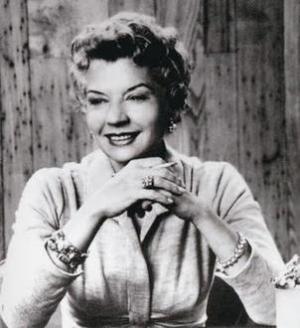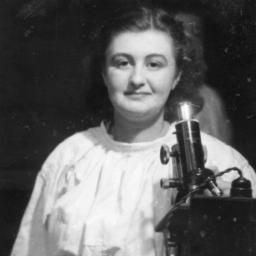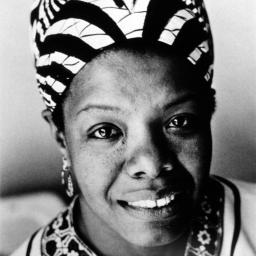Brownie Wise

Brownie Wise was a self-made woman who revolutionized marketing tactics and had a knack for motivating others. She introduced the now popular household item, Tupperware, to the market. A pioneering businesswoman when there were not many women in business, her career serves as an inspiration for generations of women.
Brownie Mae Humphrey was born in Buford, Georgia on May 25, 1913. Her father was a plumber and her mother, Rose Stroud Humphrey, was a hat maker. Her parents divorced when Wise was young, and her father left the picture. As a single parent, Rose got a job as an organizer for the hat makers’ union. The job required extensive travel, meaning Wise spent months or years at a time away from her mother. Wise grew up with her Aunt Pearl, a dressmaker near Atlanta, and an extended group of cousins. Wise was a good student but was more interested in fashion and boys than the classroom. Her cousins recalled Wise was very persuasive, a skill she would use successfully in her career.
Very few records survive from Wise’s teenage years. Relatives report she left school after eighth grade. She supposedly joined her mother to work for the union and gave speeches at union meetings. At 18, she briefly attended a YWCA camp for girls aspiring to have business careers. She dreamed of becoming a writer and illustrator.
In 1936, Wise won a contest to paint a mural at the Texas Centennial in Dallas. While there she met Robert W. Wise, who was in charge of the Ford Motor Company’s exhibit. The couple married on December 15, 1936 and quickly moved to Detroit where Robert worked as a machinist and opened a small machine shop. Their only son, Jerry, was born in May 1938. Robert turned out to be a violent drunk and the couple divorced in 1941. Wise kept Robert’s last name and never remarried. Like her own mother, she was now a single parent.
During the late 1930s and early 1940s, Wise frequently contributed to the Detroit News “Experience” column, a readers’ forum. Wise, writing as “Hibiscus,” crafted stories of her life that were a combination of wishful thinking and make believe. Beyond writing, she began working briefly in an ad agency and as a salesperson in a clothing store. During World War II, she worked as an executive assistant for Bendix Aviation. To make extra money after the war, she and her mother began selling Stanley Home Products at home parties; part of her sales pitch was a demonstration of how the products worked. Even though she became one of the top Stanley salespeople, Stanley’s founder told her that as a woman she had no place in management. She refused to accept that, and switched to selling a new product: Tupperware.
While Tupperware is everywhere now, it was not selling well in the late 1940s and early 1950s. Earl Tupper, the founder, had introduced the innovation to the market, but most people were not used to having consumer products made of plastic (which was associated with commercial and military products). Tupperware was also only in stores, where product demonstrations were impossible. Wise, who saw promise in the product, began selling it with her mother in the late 1940s. The two began a direct selling business called Patio Parties. She adopted the home party technique she used at Stanley, throwing parties and demonstrating Tupperware mainly to women. She recruited dealers and managers and was soon selling more Tupperware than any store. Her success caught the attention of Tupper and convinced him that home parties were the best sales tactic.
In 1951, Tupper recruited Wise to develop the party plan model and made her Vice President of Marketing. This job title made Wise one of the few female executives at the time. She took charge and centered the department around the home party plan. After Wise took over marketing, millions of Tupperware began flying off the shelves. Tupper took his product out of stores and began selling it exclusively through the home party plan. By 1954, there were approximately 20,000 people (including men and non-white women) in the network of dealers, distributors, and managers. All were private contractors. Many cited the opportunity to make extra money as well as Wise’s self-help rhetoric as reasons they got involved.
Now based in Miami, where the family moved in 1950 after Jerry got sick, Wise made Florida Tupperware’s salesforce center. She started a “Tupperware Jubilee”—a four-day sales meeting that mixed learning about the product with entertainment. She proposed moving the company’s headquarters to Kissimmee, FL and oversaw the design and construction of the campus. Wise also became the public face of the company, appearing on talk shows and magazine covers and serving as an honored guest or invited speaker at national sales and marketing conferences. She was usually the only woman in attendance. She was the first woman to appear on the cover of Business Week.
While Tupper was initially ok with this arrangement, he became jealous of Wise and the credit she was receiving for Tupperware’s success. The two also fought a lot. In January 1958, the Board of Directors unceremoniously fired Wise. She filed a $1.6 million law suit against Tupperware for conspiracy and breach of contract, but settled out of court for a year’s salary (about $30,000). She had no stock. Shortly after her firing, Earl Tupper sold the company. Wise saw no money from the sale.
Wise never achieved the same success. She co-founded three direct-sales cosmetic companies, served as the president of Vivane Woodard Cosmetics (1960-2), consulted for a few companies, and dabbled in real estate in the Kissimmee area. She was also active in the church and worked as an artist in clay and textiles. After years of declining health, Wise died at 79 on September 24, 1992.
While she and the company parted poorly, Tupperware now includes Wise and her contributions in the company’s official history; the company also donated $200,000 so an Orlando, FL park could be renamed Brownie Wise Park. The home party model she pioneered at Tupperware not only ensured the success of that company but it also inspired hundreds of others. Her techniques serve as the basis for the “side hustle” direct sales businesses that are now so central, particularly for women.
“Brownie Wise,” American Experience, PBS, https://www.pbs.org/wgbh/americanexperience/features/tupperware-wise/
Brownie Wise Papers, 1938-1968, Archives Center, National Museum of American History, https://sova.si.edu/record/NMAH.AC.0509
Kat Eschner, “The Story of Brownie Wise, the Ingenious Marketer Behind the Tupperware Party,” Smithsonian Magazine, April 10, 2018, https://www.smithsonianmag.com/smithsonian-institution/story-brownie-wise-ingenious-marketer-behind-tupperware-party-180968658/.
“Wise, Brownie,” Detroit Historical Society, https://detroithistorical.org/learn/encyclopedia-of-detroit/wise-brownie
MLA – Rothberg, Emma. “Brownie Wise.” National Women’s History Museum, 2022. Date accessed.
Chicago – Rothberg, Emma. “Brownie Wise.” National Women’s History Museum. 2022. www.womenshistory.org/education-resources/biographies/brownie-wise.
Image Credit: Fair use, https://en.wikipedia.org/w/index.php?curid=33209984
Bib Kealing, Life of the Party: The Remarkable Story of How Brownie Wise Built, and Lost, a Tupperware Party Empire (New York: Crown Archetype, 2016)
“Social Marketing Before the Internet,” National Women’s History Museum, March 22, 2017, https://www.womenshistory.org/articles/social-marketing-internet




